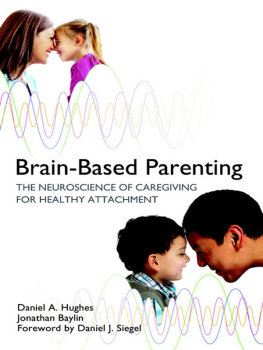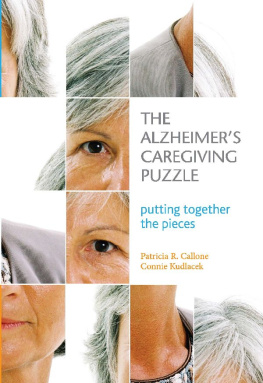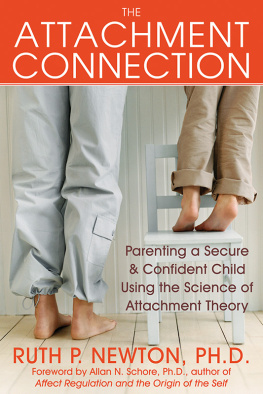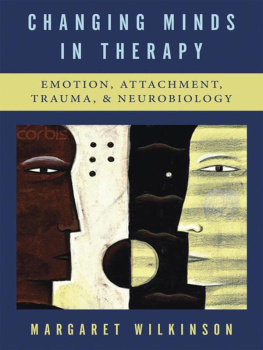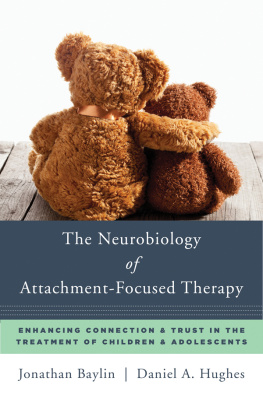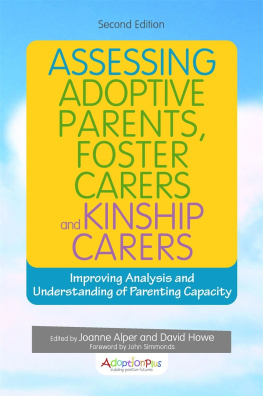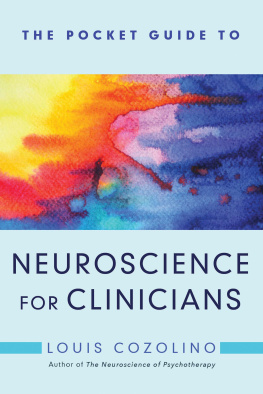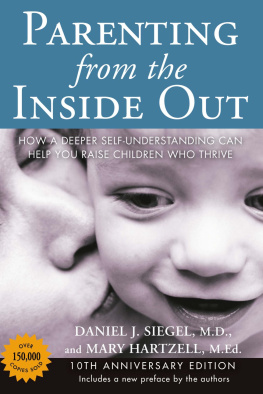
Brain-Based Parenting
Brain-Based Parenting

The Neuroscience of Caregiving
for Healthy Attachment
Daniel A. Hughes
Jonathan Baylin
Foreword by Daniel J. Siegel

W. W. Norton & Company
New York London
Copyright 2012 by Daniel A. Hughes and Jonathan Baylin
All rights reserved
Printed in the United States of America
First Edition
For information about permission to reproduce selections from this book, write to Permissions, W. W. Norton & Company, Inc., 500 Fifth Avenue, New York, NY 10110
For information about special discounts for bulk purchases, please contact W. W. Norton Special Sales at or 800-233-4830
Manufacturing by Quad Graphics, Fairfield
Book design by Martha Meyer, Paradigm Graphic Design
Production manager: Leeann Graham
Library of Congress Cataloging-in-Publication Data
Hughes, Daniel A.
Brain-based parenting : the neuroscience of caregiving for healthy attachment / Daniel A. Hughes and Jonathan Baylin.
p. cm. -- (The Norton series on interpersonal neurobiology)
(Norton professional book)
Includes bibliographical references and index.
ISBN 978-0-393-70728-1 (hardcover)
ISBN 978-0-393-70768-7 (e-book)
1. Parent and child. 2. Attachment behavior in children. 3. Parenting. I. Baylin, Jonathan F. II. Title.
BF723.P25H84 2012
649.1019--dc23
2011046056
ISBN: 978-0-393-70728-1
W. W. Norton & Company, Inc., 500 Fifth Avenue, New York, N.Y. 10110
www.wwnorton.com
W. W. Norton & Company Ltd., Castle House, 75/76 Wells Street, London W1T 3QT
I would like to dedicate this book to my parents and to my children. They have helped me to understand the magic of the parentchild relationship from both sides. DH
I would like to dedicate this book to my wife, Sarah, and to my sons, Benjamin and Zachary. JB

Contents

Acknowledgments
Over the years, Allan Schore and Dan Siegel have given me much time and encouragement to develop my thinking around interventions that are congruent with the emerging insights that we are getting from the new research into the structure and functioning of the brain. Their theory of Interpersonal Neurobiology has provided much of the impetus for this work for me.
This book would never have been written without the enthusiasm, knowledge, curiosity, and creative ideas regarding the brain and nervous system that my coauthor has brought to these pages. He understands the research involving the brain much more than I do and he is always quick to move us both into discussions about the implications of this research for clinical applications. Jon is truly a renaissance manthose who know his musical interests and abilities as well as his continuing prowess on the baseball field will attest to that. I am fortunate that he is my colleague in this and other endeavors. I am even more fortunate that he is my good friend.
DH
Because this book has been nearly 67 years in the making, many people in my life have contributed to its creation. My parents, George and Sarah, gone now, would be thrilled just to see that I finally wrote a book. My marvelous brothers, Eric and Steve, continue to inspire me every day; Eric, with his endless creativity in the realms of art, teaching, and poetry; and Steve, with his world-class work in cancer research and his full-bore engagement with life, including being the worlds oldest catcher, slapping on the tools of ignorance in the blistering Phoenix sun. Beth, thanks for the close reading of early drafts and helpful feedback. To the staff of Delaware Guidance Services where I spent thirty-some years growing up professionally, many thanks. A very special shout-out to Carl Chenkin, friend and fellow traveler. Thanks, Carl, for your humor, wisdom, and encouragement. And to Dawn and Christine, thanks for being such early and constant supporters and creative consumers of brain knowledge. To the folks in IOP and Day Treatment who really work in the trenches with the most stressed-out families, I hope our many discussions about blocked care made your work a bit easier. To the staff at High Road School, you guys have really made me work to put brain science into action. Brain group, you know who you are, just a really brainy group of wonderful people whove met regularly over years now to talk about all things brain. To members of the South Jersey Indians, the great senior baseball kids, thanks for all of the Sundays where Ive had to put aside book-writing duties to concentrate on bad hops and getting the bat on the ball. To all at Broudy and Associates, thanks for many years of being great colleagues. And to you, Dan, my coauthor, thanks for being my long-lost third brother from Pittsburgh. I have learned so much from watching you in action, connecting with kids that I havent connected enough with over many years of trying. Youve made me a believer in PACE.
Most importantly, to my wife Sarah, my lifes companion now for over fifty years, you are the constant source of all things good. Your patience with cluttered surfaces has been almost limitless; your love and encouragement have been limitless. And your greatest gift of so many, giving birth to Ben and Zach. Thanks guys, for being who you are and for teaching me all the best I know about being a father.
JB

Foreword
This important book offers parents and other caregivers, as well as professionals who work with families, a useful, neuroscience-inspired framework for understanding and improving the experience of raising children. By carefully revealing the science of the caregiving brain, the authors provide an inside view of the experience of being a parent, and offer practical suggestions for how to use this fascinating knowledge to improve the day-to-day ways we care for our children.
Modern research reveals at least five systems or clusters of neuronal circuits that enable fundamental aspects of the care of children to occur. The authors have creatively described these systems and demonstrate the powerful benefits when a parent understands them in daily family life. These basic parenting circuits include (1) the approach system that allows us to connect rather than withdraw from our children; (2) the reward system that makes parenting pleasurable; (3) the child reading system that enables us to see the mind of the child, or have mindsight, as we reflect on the inner experience of a child, and not just respond to their behavior; (4) the meaning-making system that enables us to have a coherent understanding of ourselves; and, (5) the executive system that coordinates and balances the other four systems and enables us to become attuned to ourselves and to our child and also to repair ruptures in such attunements when they inevitably occur.
When parents and others provide care for a child, these five systems should work well together. When things get tough, when moments of conflict arise between a parent and a child or within the inner life of the parents own mind, the care systems can become blocked. Hughes and Baylin brilliantly describe the ways in which a given child can induce a momentary blockage in care, or how extended blocked care can occur, compromising the childs healthy development. Having insights into how and why blocked care happens can open a window of opportunity for a parent to reflect on what is going on interpersonally as well as internally so that such toxic blockages can be identified, internal shifts can be initiated, and interpersonal repair can occur. This is an important way we can parent from the inside out. Each of the five parental systems can contribute to blockages, and knowing how our own brain functions as caregivers can be an empowering knowledge that sets the stage for conscious, intentional parenting.
Next page
